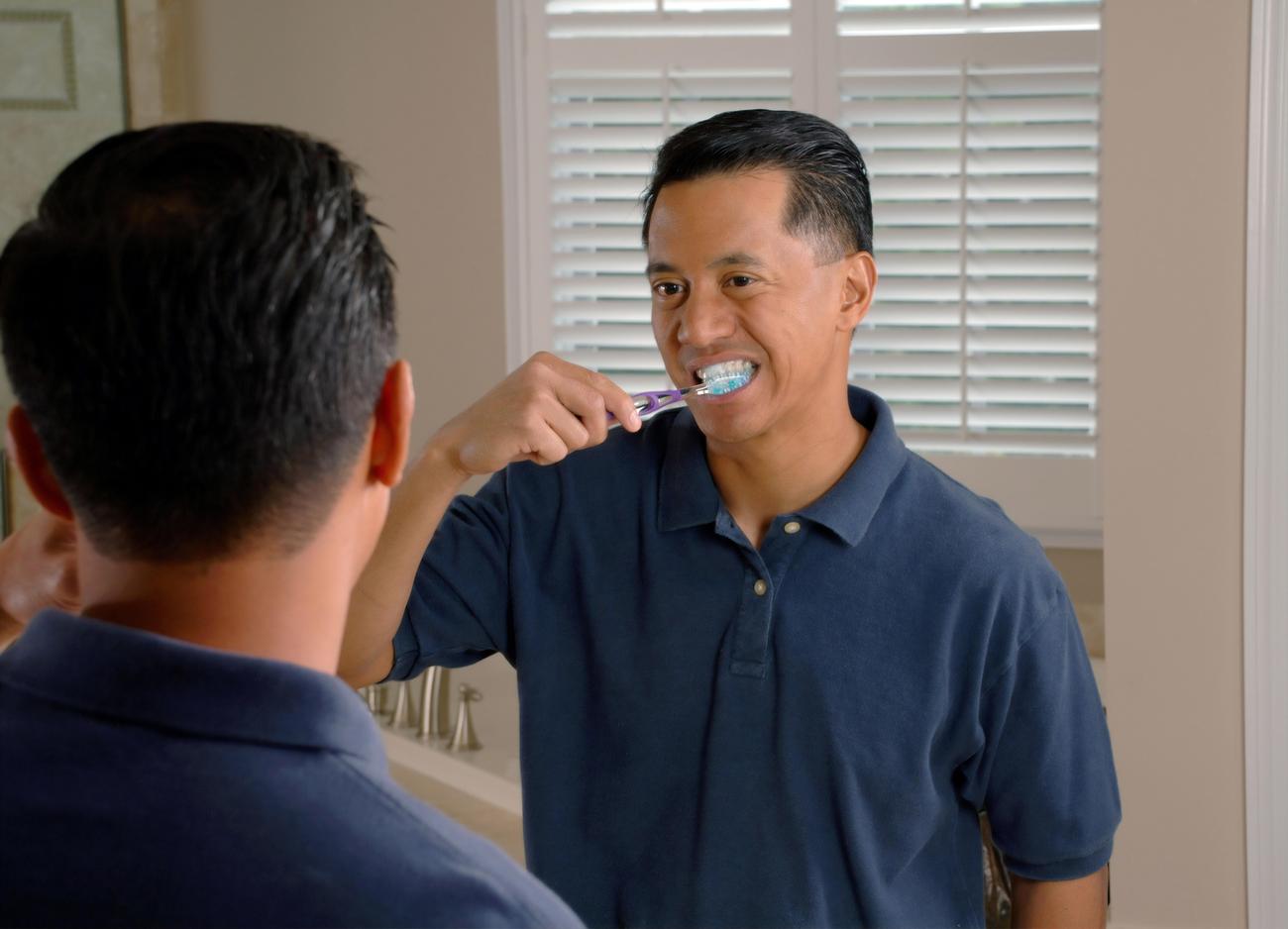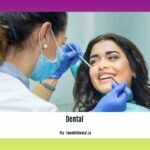Unlocking the Facts: Achieving Optimal Oral Hygiene

Welcome to a world where a healthy smile goes beyond just having pearly whites. In this article, we will delve into the nitty-gritty facts about good oral hygiene that will revolutionize the way you approach your dental care routine. As a seasoned dental hygienist, I am delighted to share my extensive knowledge and experience to guide you towards achieving optimal oral health. From debunking common myths to revealing the hidden connection between oral hygiene and overall wellness, prepare to unlock the secrets that will transform your smile and boost your overall well-being. Get ready to embark on a journey of discoveries as we uncover the truths behind achieving optimal oral hygiene and the life-changing benefits it brings.
What are some facts about good oral hygiene?
Maintaining good oral hygiene is essential for your overall health and well-being. By practicing proper oral care, you can prevent dental issues like cavities, gum disease, and tooth loss. Additionally, it allows for early detection of oral diseases and contributes to your appearance, speech, and quality of life. Did you know that taking care of your teeth and gums can even reduce the risk of certain diseases like diabetes, heart disease, and stroke? In this article, we will explore some important facts about good oral hygiene and provide you with practical tips to achieve optimal oral health.
One of the most crucial aspects of good oral hygiene is regular brushing. Brush your teeth twice a day with fluoride toothpaste to remove plaque, food debris, and bacteria. The fluoride in toothpaste strengthens your tooth enamel, making it more resistant to decay. Make sure to use a soft-bristled toothbrush and a gentle circular motion to clean all surfaces of your teeth, including the front, back, and chewing surfaces. Remember to replace your toothbrush every three to four months or sooner if the bristles become frayed.
Flossing is another vital component of oral hygiene that should not be overlooked. Floss daily to remove plaque and food particles from between your teeth and along the gum line. This helps prevent gum disease and cavities in these hard-to-reach areas. Take about 18 inches of dental floss and wind it around your middle fingers, leaving about 1-2 inches of floss between your hands. Gently slide the floss between two teeth, curve it around the base of each tooth, and move it up and down to scrape away any buildup. Don’t forget to reach the back teeth as well!
Brushing and flossing alone may not be enough to maintain optimal oral health. Regular visits to your dentist are essential for professional cleanings and comprehensive check-ups. Visit your dentist regularly for professional cleanings and examinations, even if your teeth and gums appear healthy. Your dentist can detect any signs of dental issues early on and recommend appropriate treatments. These preventative measures help ensure your teeth and gums stay healthy and free from problems such as cavities and gum disease.
It’s important to note that good oral hygiene goes beyond just brushing, flossing, and dental visits. Your diet also plays a significant role in maintaining oral health. Limit sugary and acidic foods that can erode tooth enamel and contribute to tooth decay. Instead, opt for a well-balanced diet rich in vitamins and minerals that support healthy teeth and gums. Drinking plenty of water throughout the day also helps flush away bacteria and maintains saliva production, which is crucial for oral health.
In addition to the physical benefits, good oral hygiene also has a positive impact on your mental well-being. Having a healthy smile boosts your self-confidence and improves your overall appearance. It allows you to speak clearly, enhancing communication and social interactions. Moreover, it enables you to enjoy food without discomfort or pain, enhancing your quality of life.
Remember, good oral hygiene is not just about maintaining a beautiful smile. It is an essential part of your overall health and can potentially safeguard you against various systemic diseases. By taking care of your teeth and gums, you are investing in your well-being and ensuring a healthier future.
To summarize, here are the key facts about good oral hygiene:
- Regular brushing twice a day with fluoride toothpaste removes plaque and food debris, preventing cavities and gum disease.
- Daily flossing cleans between the teeth and along the gum line, further reducing the risk of dental issues.
- Routine dental visits for professional cleanings and examinations help maintain optimal oral health and detect any issues early on.
- Adopting a healthy diet, limiting sugary and acidic foods, and drinking plenty of water enhances oral health.
- Good oral hygiene not only improves your appearance but also enhances your speech and quality of life.
- Taking care of your teeth and gums can potentially reduce the risk of certain systemic diseases.
With these facts in mind, you can now embark on your journey towards achieving optimal oral hygiene and enjoy the benefits it brings to your overall health and well-being.
Dental hygienists play a crucial role in maintaining our oral health. Ever wondered what it takes to become a dental hygienist? Want to discover some interesting facts about this profession? Look no further! We have compiled a list of fascinating insights about dental hygienists that will pique your curiosity. From their extensive knowledge of oral hygiene to their expertise in preventative dental care, dental hygienists are truly the unsung heroes of our smiles. So, if you’re ready to dive deep into the world of dental hygiene, click here to explore the mesmerizing world of dental hygienists and uncover some surprising facts and figures: interesting facts about dental hygienist.

FAQ
Q: Why is oral hygiene important for overall health?
A: Oral hygiene is important for overall health because it helps prevent cavities, gum disease, and tooth loss. Regular brushing and preventative dental care keep your teeth and gums healthy. Additionally, maintaining good oral hygiene allows for the early detection of oral diseases and other health problems, which can be addressed before they worsen. Good oral hygiene also enhances your appearance, speech, and quality of life. Having healthy teeth and gums improves your smile, allows you to speak clearly, and enables you to enjoy food without discomfort. Furthermore, maintaining good oral hygiene reduces the risk of certain diseases such as diabetes, heart disease, and stroke. Poor oral health has been linked to these conditions, so taking care of your teeth and gums can help protect your overall health.
Q: How can I maintain good oral hygiene?
A: To maintain good oral hygiene, it is recommended to brush your teeth twice a day with fluoride toothpaste, floss daily, and visit your dentist regularly. Brushing your teeth properly removes plaque and food debris, preventing cavities and gum disease. Flossing helps remove plaque and food particles from between your teeth and along the gum line. Regular dental visits allow for professional cleaning, thorough examination, and early detection of any oral health issues. By following these practices, you can promote overall oral health and keep your teeth and gums clean and healthy.
Q: How does oral hygiene contribute to early disease detection?
A: Oral hygiene contributes to early disease detection by allowing regular dental visits, which can help identify and address oral health issues before they worsen. During dental check-ups, your dentist will examine your teeth, gums, and oral tissues for any signs of disease, such as cavities, gum disease, oral cancer, or other health problems. Timely detection of these conditions through good oral hygiene practices and regular dental visits can lead to early intervention and treatment, potentially preventing further complications.
Q: Can oral hygiene affect my appearance and speech?
A: Yes, oral hygiene can affect your appearance and speech positively. Maintaining good oral hygiene ensures healthy teeth and gums, which enhances your smile. Healthy teeth contribute to an attractive appearance and boost your confidence. Furthermore, proper oral hygiene allows you to speak clearly and articulately. Dental problems such as tooth decay or gum disease can cause speech difficulties or affect your pronunciation. By taking care of your teeth and gums, you can enjoy improved speech and communicate effectively.
Q: How does good oral hygiene benefit my overall quality of life?
A: Good oral hygiene benefits your overall quality of life in several ways. Firstly, it improves your oral health and prevents dental problems such as cavities and gum disease. This reduces the need for extensive dental treatments, resulting in less discomfort and cost. Secondly, good oral hygiene promotes healthy teeth and gums, allowing you to enjoy food without discomfort or pain. Having a pain-free mouth enhances your eating experience and overall enjoyment of meals. Lastly, maintaining good oral hygiene reduces the risk of certain systemic diseases such as diabetes, heart disease, and stroke. Research has linked poor oral health to these conditions, highlighting the importance of oral hygiene in protecting your overall health and well-being.












